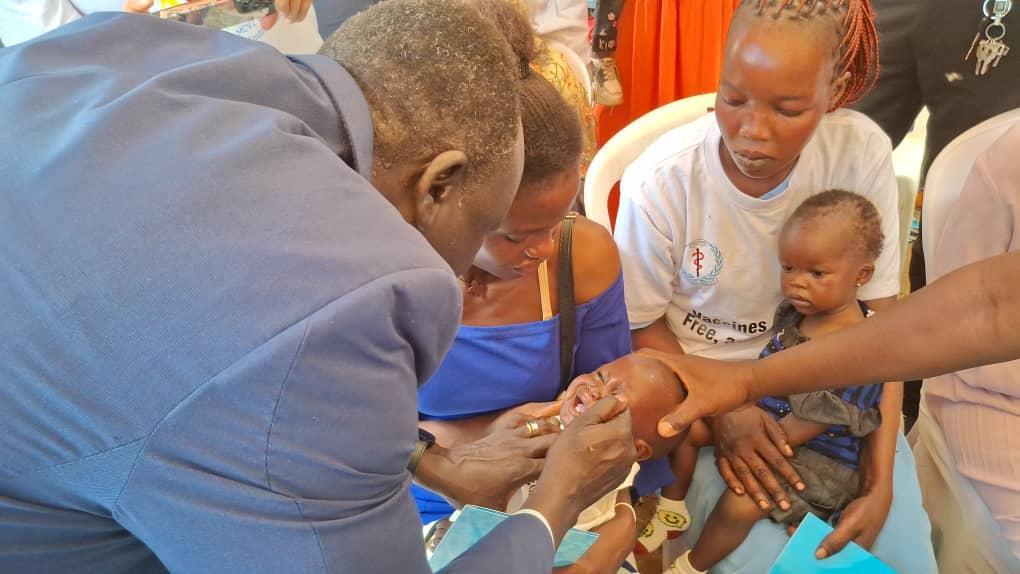Africa-Press – South-Sudan. The Ministry of Health, in partnership with partners, has officially launched a nationwide vaccination campaign aimed at protecting children aged 12 to 59 months from pneumonia and diarrheal diseases, which are often the two leading causes of childhood death in South Sudan.
The launch event took place at Al Sabbah Children’s Hospital in Juba, where Dr. Aniin Ngot Mou, Undersecretary of the Ministry of Health said the government is strongly committed to reducing childhood illnesses through this crucial initiative.
“This campaign reflects the government’s unwavering commitment to equitable healthcare, ensuring that no child is left behind, regardless of their location or socio-economic status,” Dr. Aniin stated.
“The vaccines will be provided free of charge through our routine immunization program. We are strengthening cold-chain systems, training health workers, and conducting awareness campaigns to ensure broad coverage and acceptance in the community.
launched under the theme: “Accelerating the Fight Against Pneumonia and Diarrheal Diseases in Children Aged 3–24 Months in South Sudan,” the campaign will be rolled out nationwide through existing health facilities and outreach programs, focusing especially on vulnerable populations in remote and underserved areas.
“We urge parents, caregivers, community leaders, and the media to support this effort so that together we can eliminate preventable childhood diseases,” he said.
Dr. Justin Bruno Tongun, Executive Director of Al Sabbah Children’s Hospital, welcomed the introduction of Pneumococcal Conjugate (PCV) and rotavirus vaccines because of their potential to reduce hospitalizations and deaths from pneumonia and diarrhea.
“Malaria, pneumonia, diarrhea, and severe malnutrition are the top killers here. These vaccines will directly address pneumonia and severe diarrhea, saving many young lives,” said Dr. Bruno.
“Public awareness is key to encouraging mothers to bring their children for vaccination.”
Dr. Koiti Emily, Executive Director of South Sudan Women in Medicine, called on policymakers to prioritize immunization funding in national budgets.
“While donor support is invaluable, the long-term success of immunization programs depends on sustainable domestic healthcare financing,” Dr. Koiti said.
“The health and future of our children must be a national investment, not solely donor-dependent.”
Ubia Achieng, UNICEF’s Deputy Representative, reiterated UNICEF’s commitment to working alongside the government to ensure children not only survive but thrive.
“To caregivers: your choices protect your children’s future and that of the country. We must leave no child behind,” she urged.
WHO Representative in South Sudan, Dr. Mutale Senkwe Nsakashalo, praised the impact of immunization programs have had across Africa.
“Since 1974, vaccines have saved over 50 million children across Africa. In 2024 alone, a child was 50% more likely to survive to their next birthday thanks to vaccination,” she noted.
“These numbers represent real stories of healthy children and stronger communities.”
For More News And Analysis About South-Sudan Follow Africa-Press






